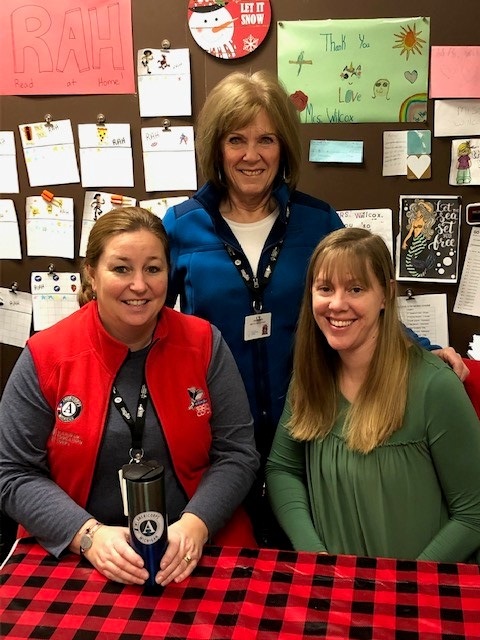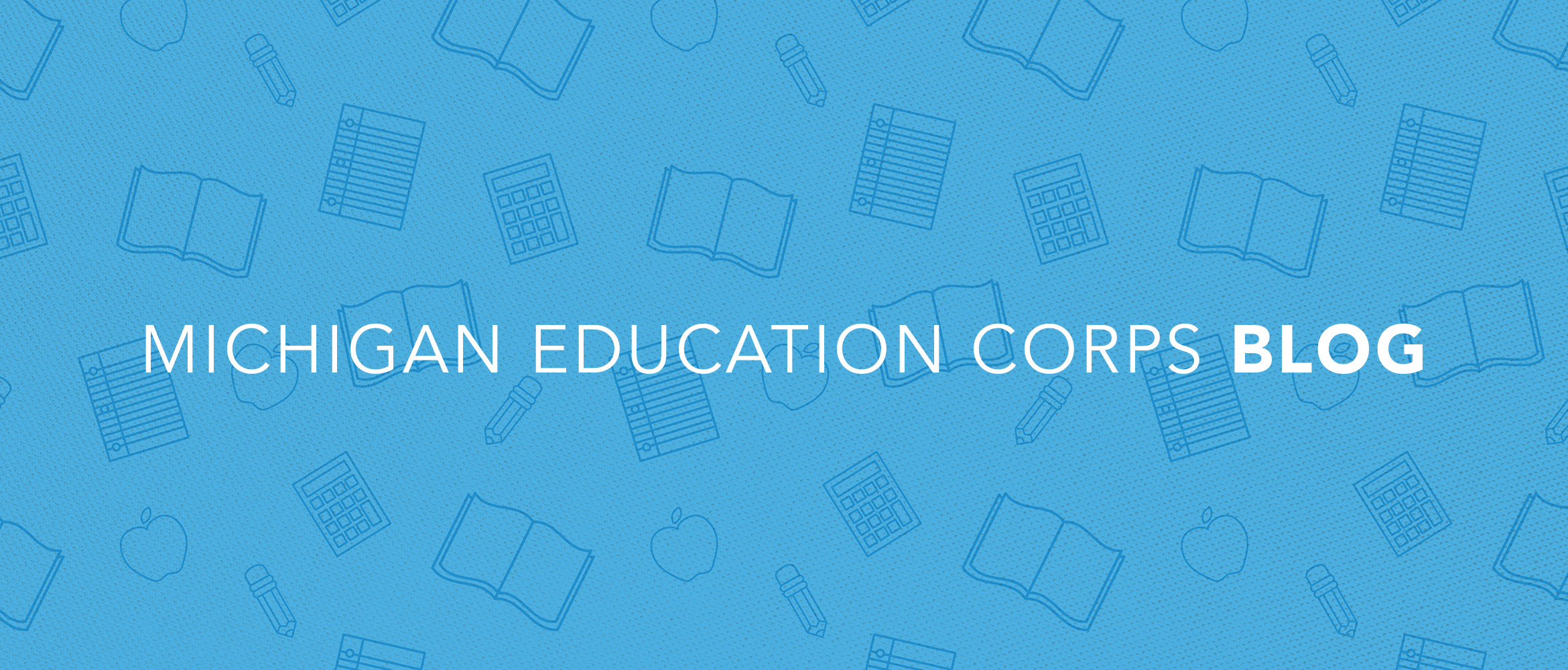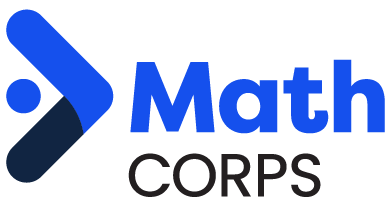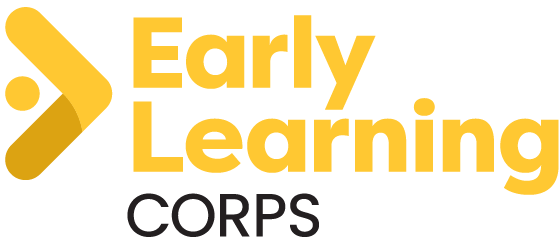
Interview with Alison Mellon, K-3 Reading Corps Master Coach
 Alison Mellon is a second-year Master Coach for Michigan Education Corps’ K-3 Reading Corps. In her education career that spans over 3 decades, she has served as a classroom teacher in Detroit and Charlevoix Public Schools, a literacy consultant at Charlevoix-Emmet Intermediate School District, and a Program Director for a literacy-focused AmeriCorps program. When that program ended, she became the Master Coach for Michigan Education Corps interventionists serving in northern Michigan schools including Alpena, Alcona, Pellston, and Boyne City. We sat down with Alison to talk about her role as a Master Coach, how she supports interventionists and why coaching is such an important component of our program models.
Alison Mellon is a second-year Master Coach for Michigan Education Corps’ K-3 Reading Corps. In her education career that spans over 3 decades, she has served as a classroom teacher in Detroit and Charlevoix Public Schools, a literacy consultant at Charlevoix-Emmet Intermediate School District, and a Program Director for a literacy-focused AmeriCorps program. When that program ended, she became the Master Coach for Michigan Education Corps interventionists serving in northern Michigan schools including Alpena, Alcona, Pellston, and Boyne City. We sat down with Alison to talk about her role as a Master Coach, how she supports interventionists and why coaching is such an important component of our program models.
Q: What is your position and responsibilities with Michigan Education Corps?
A: As a Master Coach, my responsibility is to provide support to both the interventionists and the Internal Coaches in implementation of the Reading Corps assessments and interventions. I attend trainings with the AmeriCorps members as they begin their service term learning to administer assessments, to organize their time and materials, and to deliver the Reading Corps interventions correctly every time. We attend more training periodically during the early part of the school year, learning how to use the Reading Corps data system and how to apply the data in making decisions about students. I observe interventionists in action with their students, and offer comments and suggestions to improve the fidelity of the intervention delivery. We confer about every student at monthly data meetings, making adjustments in interventions, planning next steps, exiting students who have met goals, and bringing in new students who need the support our interventionists offer.
Q:How are interventionists supported by you as a Master Coach? How often do you meet with interventionists and internal coaches? What do you review or discuss? Why is this important?
A: Master Coaches offer support in specific ways. We observe members practicing administering assessments before they tackle this task with their caseload of students. That way, we ensure that our assessment data is valid and reliable, and consistent from tutor to tutor. We also observe tutors delivering the Reading Corps interventions which are scripted and research-based. Again, consistency is paramount. Because Reading Corps is a national program, and is in place in 13 states and Washington DC, we need our intervention delivery to be the same from tutor to tutor in order to make informed decisions based on our data. We meet at least twice each month, but are in contact as often as necessary to make the best decisions regarding our students. Each month, we gather data from our weekly testing, daily notes the interventionist has kept, dosage data, and observations from the Internal Coach and Master Coach and look at each student’s progress. Sometimes we make changes in interventions or schedules, and sometimes we continue doing what we’re doing. We always want to maximize the progress our students are making. Our exit criteria are lofty, and based on research. When we exit a student, he or she has had to meet a specific benchmark score. But we don’t stop there! Each of our students is assessed weekly to make certain they are maintaining their success.
Q: Interventionists are also supported by MEC program staff. How do they support interventionists?
A: There is a network of support for MEC members. The Michigan Education Corps’ AmeriCorps program staff makes certain that each partner school is fulfilling its agreed-upon commitments to the program. Program staff visit each school, interviewing Internal Coaches, interventionists, and administrators. They also organize some activities for the members such as group dinners that help connect members to each other so they can share unique experiences they have had in their individual buildings, and discuss their common problems and successes. There is an annual Member Celebration that brings together AmeriCorps members from all across the state. Regional service projects offer members a different perspective on AmeriCorps service.
Q: What is coaching meant to do? What kind of impact does coaching have on interventionists?
A: Coaching is not meant to point the way. It is meant to LEAD the way. Reading Corps is, indeed, a team effort. The interventionist is the one who works daily with the students, but the Internal Coach and Master Coach is there to work shoulder to shoulder to see that the interventionist has the knowledge, tools, and support to do the work needed to bring the students to the place they need to be. We are all striving for our students’ reading success.
Q: What is one thing that you want people to know about serving with K-3 Reading Corps?
A: Choosing to serve with K-3 Reading Corps will give a member an unforgettable experience. You will make a difference in the lives of children. Each child spends twenty minutes one-on-one with you each day, and for most of these children it becomes a highlight of their day. You will become a treasured adult to each child. In addition to watching the academic growth, you will see the blossoming confidence that carries over into their classroom performance. Many tutors have talked about classroom teachers marveling at the difference in students’ attitude after participating in K-3 Reading Corps interventions.
Q:Is there anything else you want to share about your experience working with Michigan Education Corps K-3 Reading Corps?
A: In my experience with Michigan Education Corps K-3 Reading Corps, I see it as a win-win-win. The community benefits (in this case, the school) by having a well-trained interventionist in their building. The client benefits (in this case, the student) by receiving one-on-one daily practice with much-needed reading skills. The interventionist (the member) benefits by gaining skills in working with students, in earning a monetary Education Award, and in a deep sense of satisfaction in becoming part of a National Service movement.
To learn more about how to get involved (either as a school or as an interventionist), contact us through our Contact Us page.








